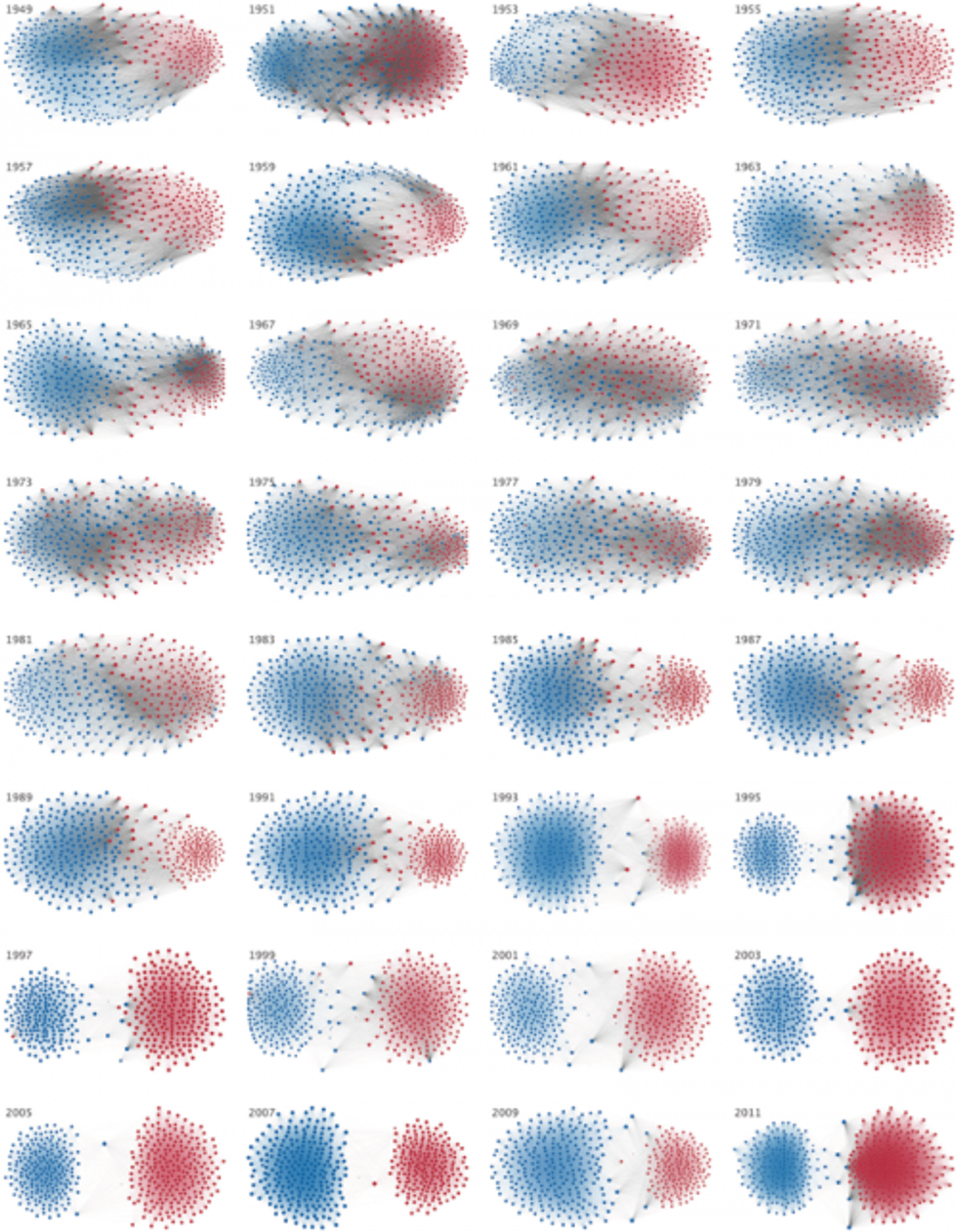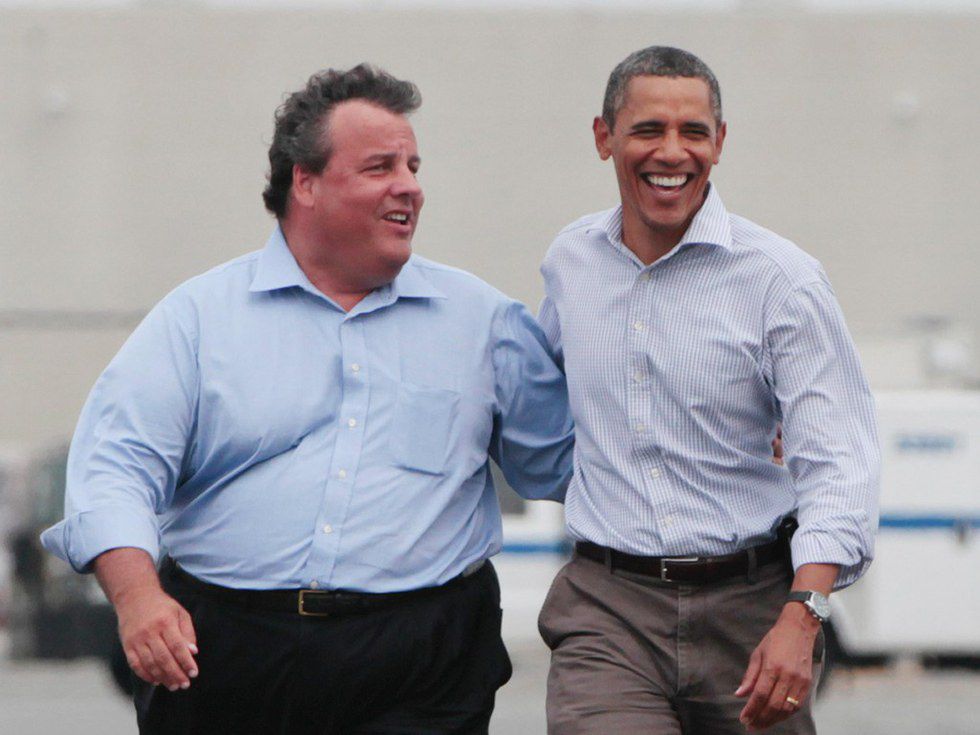This February, 2016 the Congressional approval rating dove to 14 percent according to Gallup. In the week of February 28 to March 6 the presidential approval rating was 50 percent according to Gallup. Clearly the Federal Government has a lot of room for improvement but why does Congress have such a lower approval rating than the leader of the Country? Maybe the problem is the polarization of Congress.
As we can see with his chart the republicans and democrats in the U.S. House of Representatives in addition to how polarized the parties have become between 1949 and 2011. A chart examining the U.S. Senate would also show similar results.
The Congressional approval rating has consistently decreased in the past 40 years except for the spike upwards after 9/11. I believe that a main reason for this is how extreme both parties have become.
It is well know that the parties do not work well together. We can see this through the example of the Affordable Care Act which was heavily supported by democratic leadership. This Act did not easily work its way through Congress and even once it passed it was legally challenged in the Supreme Court.
Countries such as Germany, Sweden, and the UK, developed successful nations, have implemented universal healthcare and have seen it become much more efficient than other systems but the U.S. government could not come to a consensus on this issue.
Republicans and democrats simply struggle greatly to work together.
When Chris Christie hugged Barack Obama after hurricane Sandy. After this, he was not seen favorably by the republican party. This is an example of a governor thanking the President. The same logic can be used with a member of Congress supporting a bill proposed by democratic leadership.
Members of Congress can not be seen acting supportive towards policies that the opposite party introduces because then that member will be accused of not actually being a democrat or not actually being a republican. This name calling is a main reason for the partisanship. The race to be true republican or a true democrat will push others to the limits of radicalization.
We see Bernie Sanders on the democratic side who is far left and willing to admit it. For a socialist to be running for president and winning primaries we can see that citizens of the United States are willing to accept party extremists.
All in all, I believe the main reason for a low approval rating for Congress is rooted in the polarization of the parties and the American people. A republican member of congress is not going to have the support of his or her constituents if he votes for traditionally democratic policies even if they are "common sense". Therefore, cooperation is almost non-existent and Congress is not on a very successful path.























